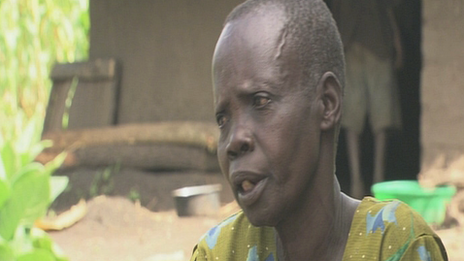Betty Bigombe: The woman who befriended a warlord
- Published
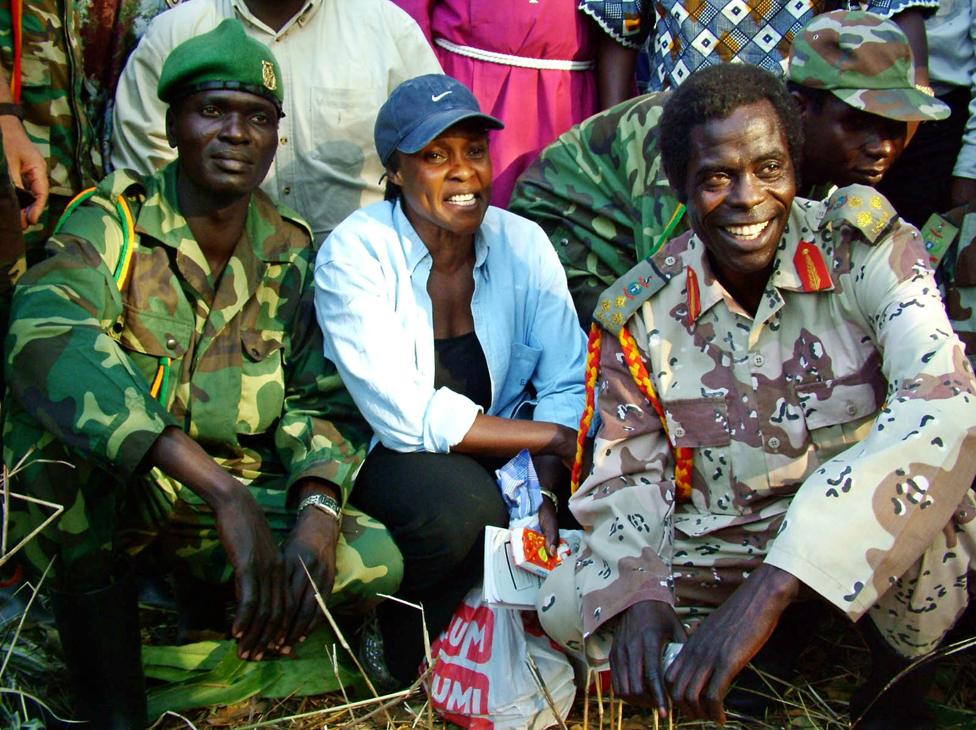
Betty Bigombe with LRA negotiator Brig Sam Kolo (right)
When Betty Bigombe was growing up in northern Uganda in the late 1950s, she walked four miles a day to go to school. She knew getting an education was the only way she could change her life and make a contribution to her community.
Some readers may find elements of this story disturbing
Thirty years later her "contribution" would be to carry the fate of her region on her shoulders as she attempted to negotiate peace with Joseph Kony, the notorious leader of the Lord's Resistance Army.
Bigombe was the eighth of 11 children and grew up in a society where polygamy is still practised today.
"Without education, I probably would be having 20 children in some rural area, carrying out the daily chores of going to the field to dig, harvest, one baby on your back and another one is crawling - one of the many wives," she says.
Her family received financial and moral support from the church as she continued to study throughout her teens, and ultimately that led to the offer of a fellowship from Harvard University.
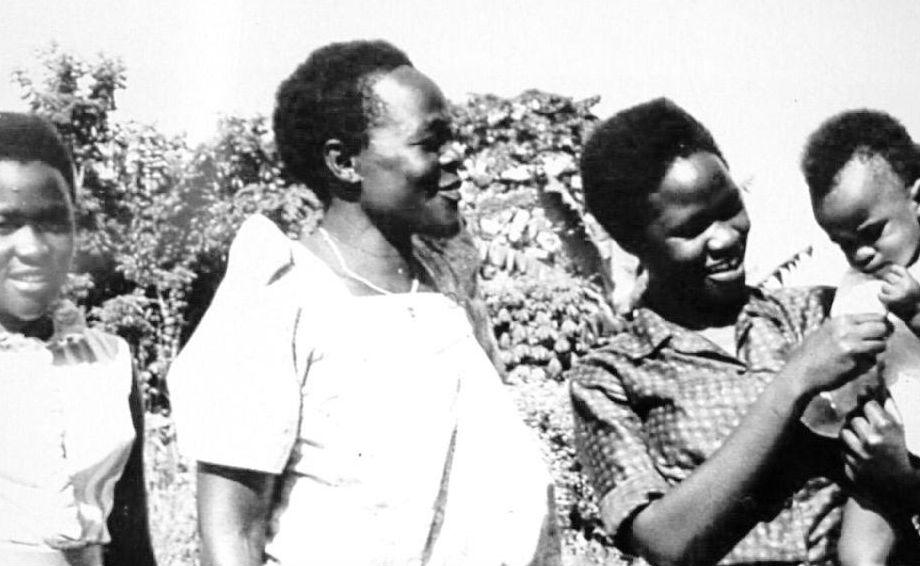
Betty Bigombe (right) with her mother and sister
In the early 1980s, she returned home as a married woman with two children. Her country was in the middle of a war that pitted President Milton Obote's forces against the guerrilla movement of Yoweri Museveni.
"At that time, I was hiding some people who were supporting President Museveni. I worked with a German woman who was with the UNHCR (the UN Refugee Agency) and we smuggled people whose lives were in danger to Kenya. With a UN flag, it was OK. We could go through road blocks and get them to safety. So, that's really what triggered off fighting injustices."
In 1986, Museveni became president, a position he still holds to this day. He rewarded Bigombe by making her a government minister.
"I was very disappointed when I was appointed, because it was just men. All they did was ask me to sit and read papers, so I went and told [the] president that I wanted to resign because I could not do crossword puzzles in the office, I could not take a novel to the office to read. I wanted work. He was shocked that I would want to resign. African ministers don't resign, especially a woman," she says.
So Bigombe came up with a proposal. War had broken out in the north of the country and she volunteered to go and find out where the rebels were and where they kept their weapons.

Find out more
Betty Bigombe talked to the BBC's Lyse Doucet in the second episode of the new series of Her Story Made History on BBC Radio 4
You can catch later online

Museveni came back with a counter proposal. He agreed to send Bigombe to northern Uganda on condition she negotiated with the factions to stop the fighting.
Her friends and family thought this was a suicide mission.
"A lot of people told me: 'Resign, he wants you dead.' Friends came and said, 'This is not a woman's job. Why does he give it to you? You have no experience.'"
Certainly, nobody else was brave enough to try to negotiate with Joseph Kony, the leader of the brutal Lord's Resistance Army. Kony was a former altar boy who now claimed he was God's messenger. He told members of his messianic cult to abduct and rape girls, and he trained boys and girls to kill.
The Lord's Resistance Army sent Bigombe a letter saying Museveni had insulted them by sending a woman to negotiate. They threatened to kill her but she stayed - determined to end the war. Then they sent a victim of Kony's violence to deliver a second letter in person.
"This guy showed up. I don't know how he didn't die. There was no tetanus injection, nothing. Lips cut off, limbs cut off, drenched in blood. The so-called letter that was addressed to me was all very bloody. Of course, I couldn't even touch it."
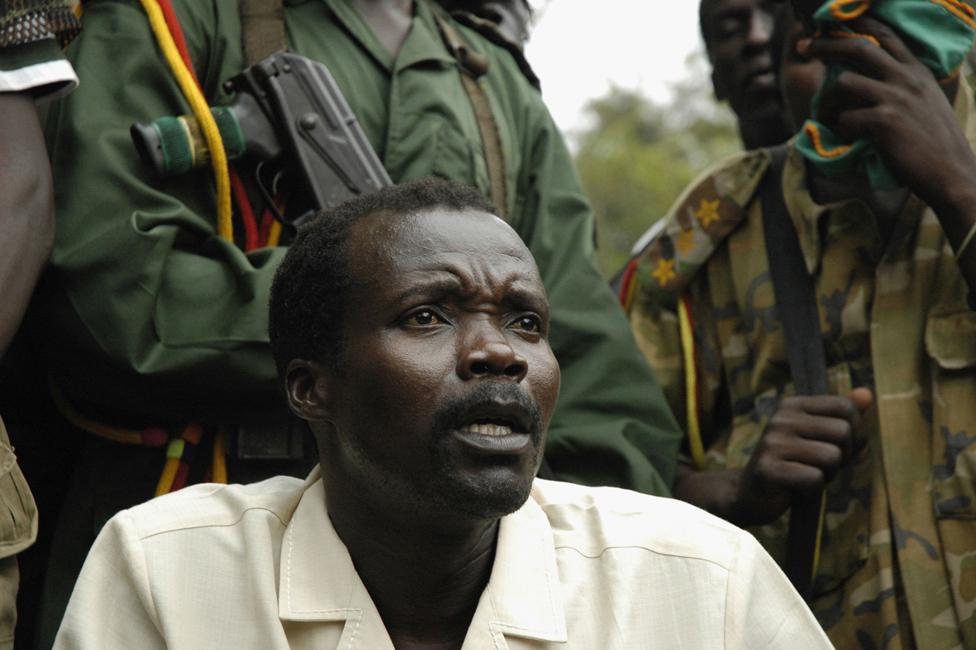
Joseph Kony in 2006
Not deterred, Bigombe decided to write back to Kony. She referred to him as "my son" and used religion as a way of connecting with him.
Eventually Kony agreed to meet. She feared he would have her tortured and resolved to kill herself rather than be captured by him.
Deep in the jungle they met for the first time.
"He was guarded, there was church music, some men were dressed as nuns and had guns. They were singing hymns and falling down, [saying] that the demon was coming out of them. The scene was just incredible. He was wearing military uniform. He definitely came ready to intimidate."
In the next 18 months, during several face-to-face meetings, Kony started calling her "Mummy" Bigombe. Eventually he agreed to come out of the jungle for peace talks with President Museveni.
Bigombe went to the president and told him they needed to establish the conditions for the peace talks. Instead Museveni went to a public rally and threatened Kony - telling him to come out immediately or face the wrath of government troops.
Kony and his forces responded by massacring 300 people in a trading centre on the border with Sudan.
Bigombe resigned and left for the US.
"I was very devastated. I had a breakdown on the plane. It was a very painful defeat, but it wasn't about me - it was the suffering of the people," she says.
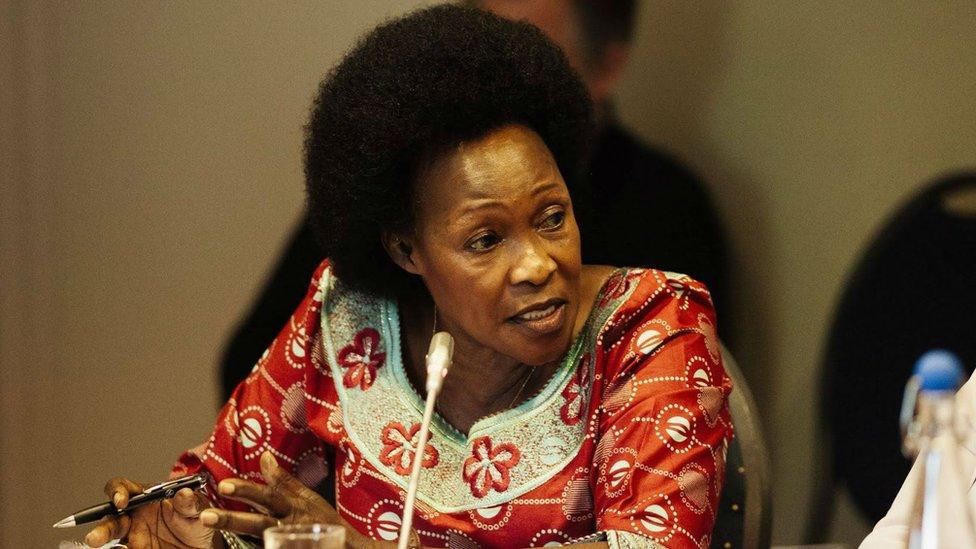
Bigombe at the Centre of Humanitarian Dialogue Oslo Forum, 2018
She again studied at Harvard and then got a job at the World Bank in Washington, working in its post-conflict unit. Then one morning in 2004 she turned on the TV and everything changed. There was breaking news on CNN - the Lord's Resistance Army had entered a camp and killed more than 300 people.
"And then, inset, there was suddenly my picture - the only person who almost ended the war, the only person who has met this rebel leader. So I thought that was a calling."
Bigombe returned to Uganda and tried to arrange a fresh meeting with Kony. She felt accepting Ugandan government funding would compromise her impartiality so she used her own money. She spent the cash she'd saved for her daughter's tuition to pay her satellite phone bill.
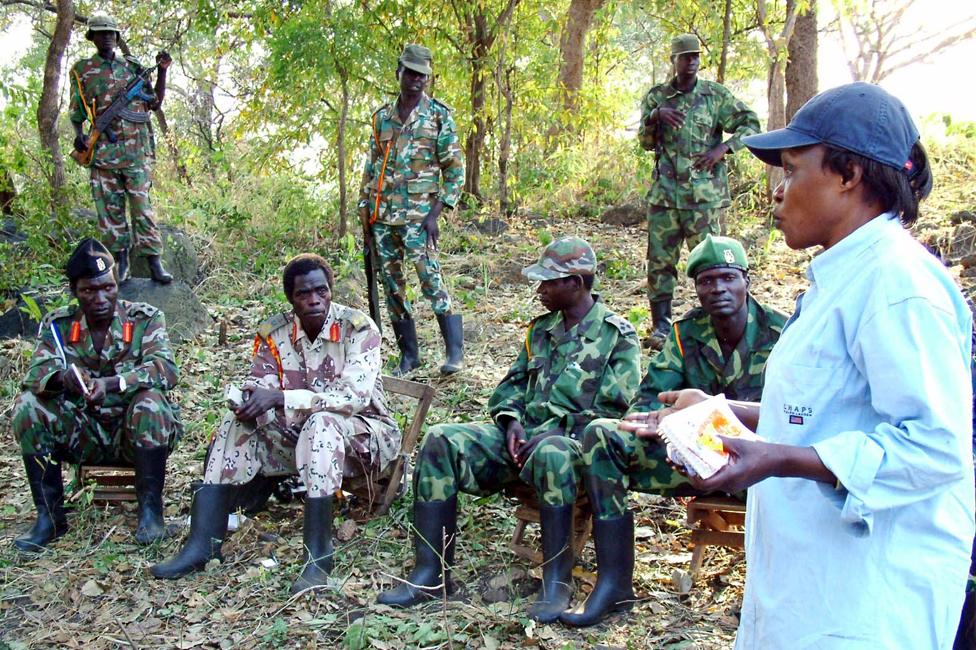
Talks with the LRA in northern Uganda, in December 2004
By this time the International Criminal Court had indicted Kony for war crimes and crimes against humanity. Bigombe's work laid the foundation for peace talks in South Sudan in 2006, though these collapsed at the 11th hour, when Kony refused to sign a peace deal.
Kony and the remnants of the Lord's Resistance Army have maintained a low profile since then. He now is reportedly in ill health and his forces have shrunk to less than 100.
Today Bigombe is helping to mediate in South Sudan's crisis in a personal capacity, drawing on her experiences in Uganda. Kony had a huge impact on her life and she on his.
"Not too long ago I met one of his fighters. They look for me. It's strange, but they do. A couple of months ago one of them got in touch with me and said: 'This time Kony is very serious, he wants to come.' And I said: 'Stop playing games, show me proof, let him call me. I know his voice.'"
Correction: An earlier version of this story erroneously stated that Bigombe was still working for the World Bank.
You may also be interested in:
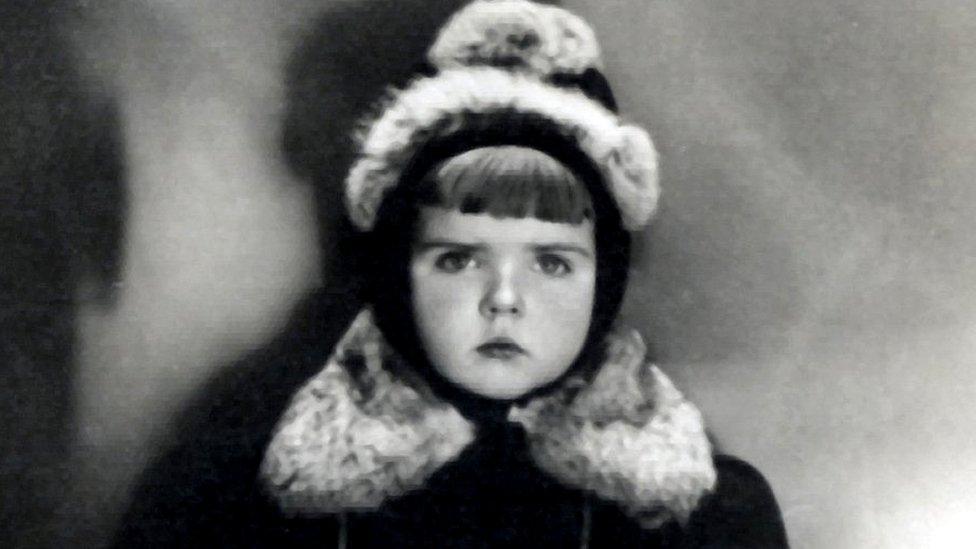
The little girl who fled from war-torn Latvia spent more than 50 years in exile - but soon after returning she became president.
Read: From child refugee to president: Latvia's Vaira Vike-Freiberga
- Published9 October 2012

- Published26 April 2023
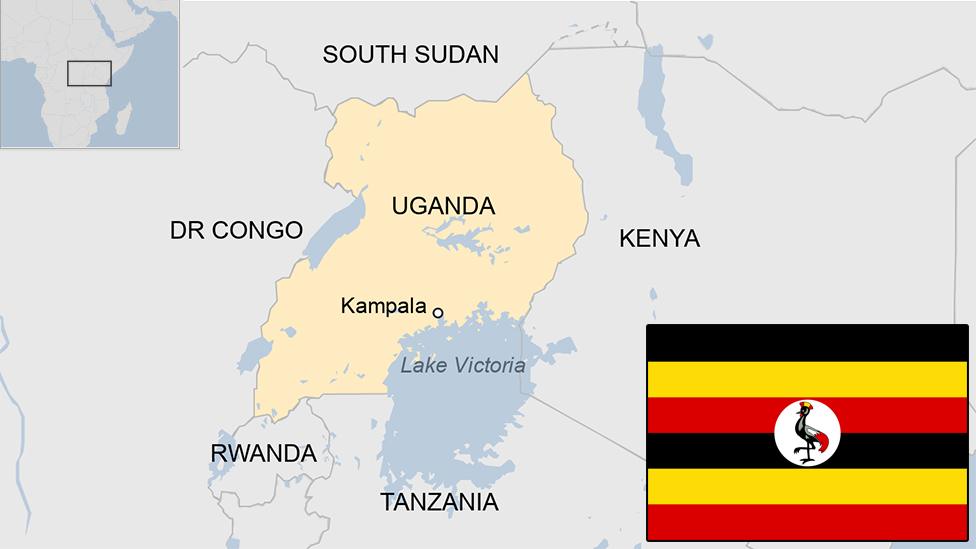
- Published27 July 2018
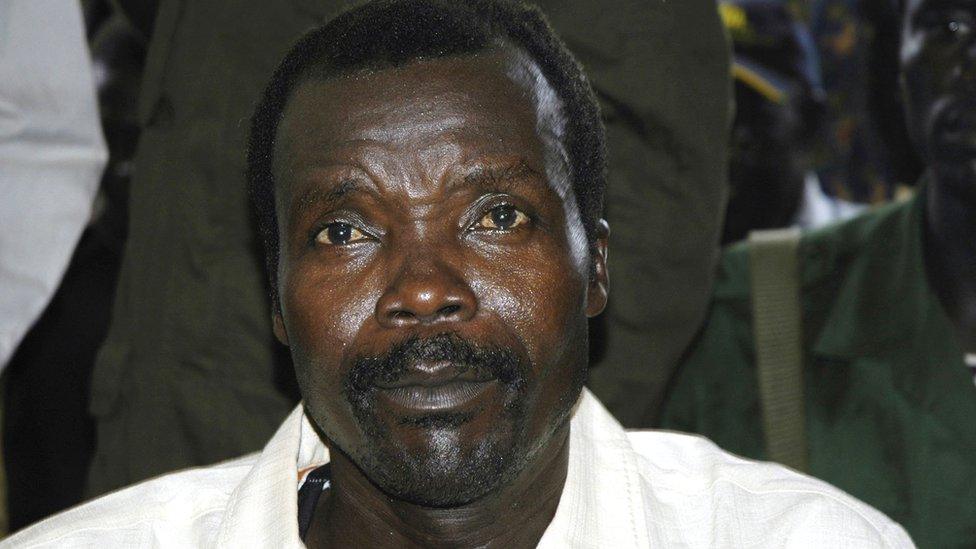
- Published24 November 2014
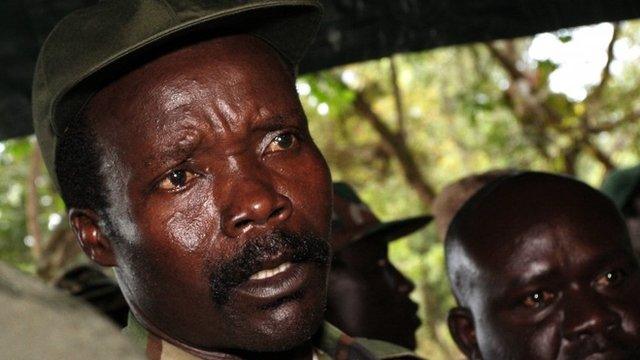
- Published20 August 2012
